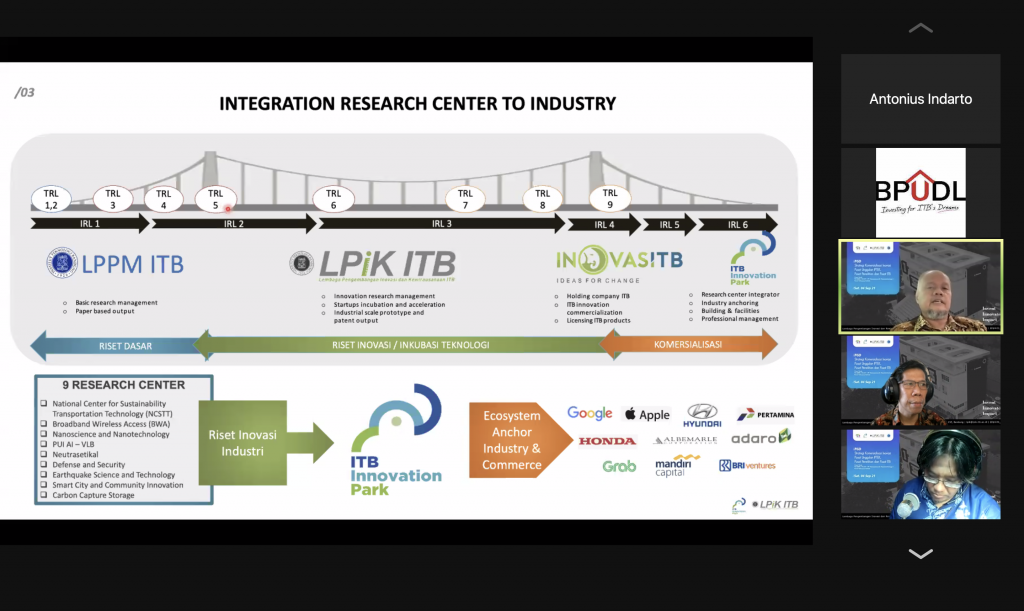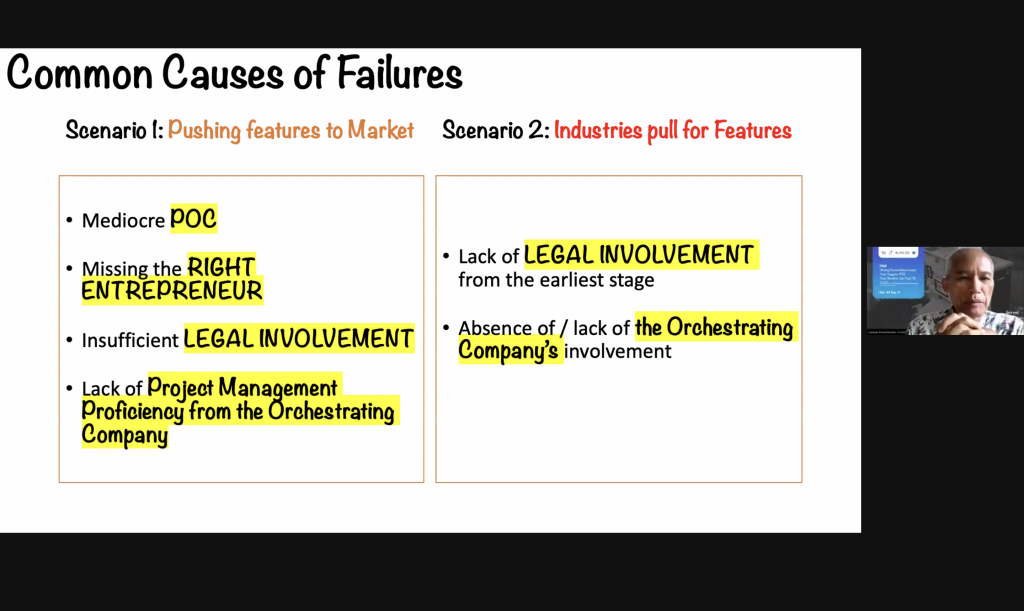Saturday (4/9/2021), LPIK hosted a Forum Group Discussion titled “The Strategy for Commercialization of Innovations at the Center of Excellence in Science and Technology, Research Center, and ITB Center”. Director of LPIK, Sigit Puji Santosa explained that commercialization starts from basic research, which is coordinated by LPPM, and is subsequently developed into an innovation by LPIK to support the intellectual property rights protection. The next stage, commercialization to industry is carried out by Rekacipta Innovation ITB (RII), a business unit under the coordination of BPUDL. LPIK organizes innovation and technology development into four clusters: (1) Infrastructure and Disaster; (2) Information and Communication Technology, (3) Food and Health; and (4) Transportation and Energy Engineering.
Deddy Priatmodjo Koesrindartoto, Director of BPUDL, emphasized that BPUDL promotes the commercialization of technology, which is consistent with ITB’s mission to become an entrepreneurial university. Many tasks must be completed including legality, finance and funding, marketing, distribution, and supply chain management. BPUDL attempted to support RII both financially and legally through Ery Yunasri & Partners Law Firm. Hopefully, BPUDL will be able to create a venture capital to help with start-up funding. In addition, BPUDL will encourage the establishment of an enterprise business inside the Faculty.


PT Rekacipta Innovation ITB (RII), as the business entity, will provide services in the areas of entities, legal, network, funding, marketing, and distribution. RII has prepared a variety of contract models in line with the downstream strategy plan, with various types of returns for ITB. Among the schemes are (1) licenses, (2) joint operations, (3) joint ventures, and (4) start-ups. To cope with difficulties such as market fit, never ending research, and minimum of quantity (MoQ), RII needs assistance from both researchers and ITB in carrying out its business operation.
On this occasion, researcher from the Center of Broadband Wireless Access, the National Center for Sustainable Transportation Technology (NCSTT), the Research Center of Nanosains and Nanotechnology, and the Center for Catalyst Engineering presented their best products for industrialization.

In the concluding session, Gilarsi Setiyono, a professional and Advisor of ITB Innovation Park, stated that “MIND to MARKET” has evolved into an entrepreneurial university. He explained that the commercialization strategy consists of 2 parts:
- the push method, in which academics can identify and provide market needs. In ITB, just 20% of this has been completed.
- the Pull method, in which industry requests that ITB create products that can be used by industry/community. This approach is more dominant (80%).
He added that both push and pull methods, the main issue that is often encountered is the legal aspect. This group discussion forum received a positive response from the invitees, particularly researchers and innovators, allowing their research to be channeled toward the creation of products that benefit the community.

